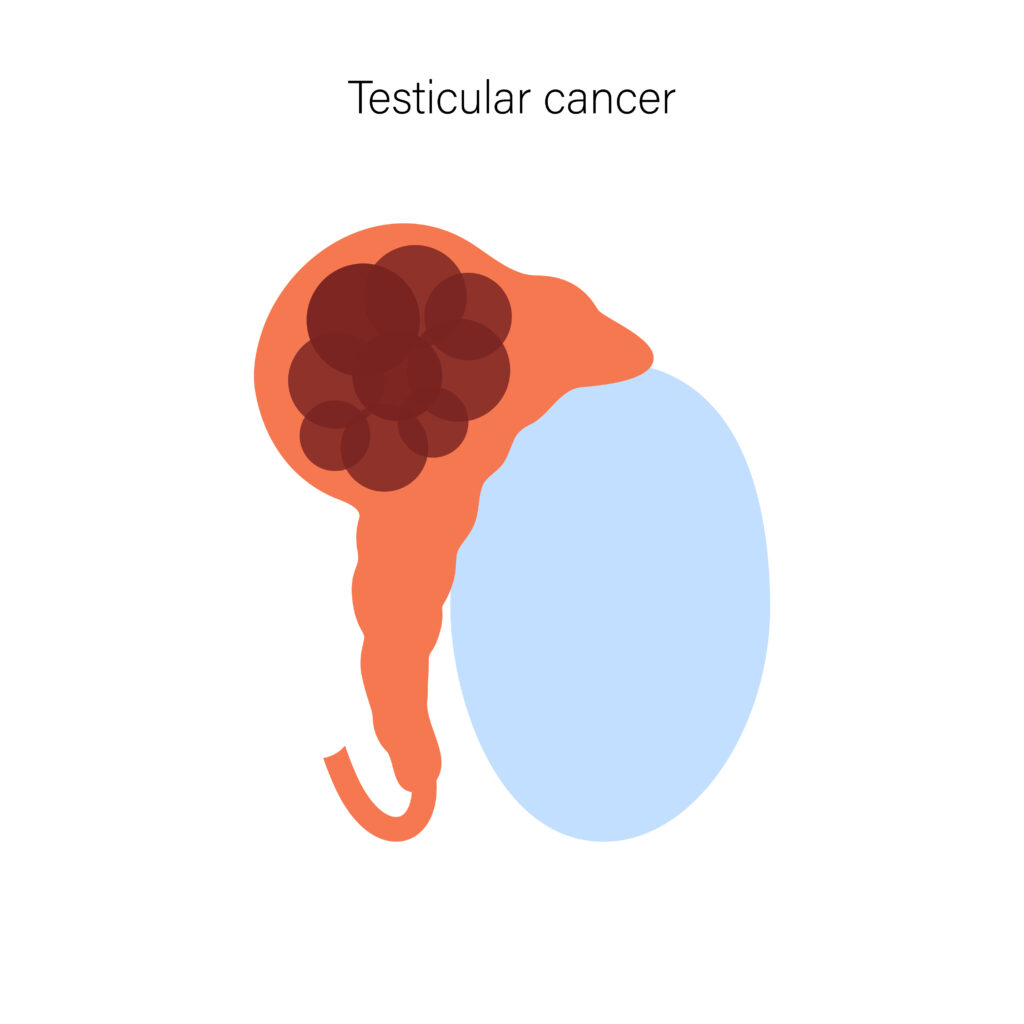Testicular Cancer

Testicular Cancer
Testicular cancer is a relatively rare but highly treatable form of cancer that affects the testicles, which are part of the male reproductive system. Understanding this cancer, its risk factors, symptoms, and treatment options is essential for early detection and effective management.
Testicular cancer primarily affects young and middle-aged men, typically between the ages of 15 and 44. It is one of the most curable cancers when detected early.
Risk Factors: While the exact cause of testicular cancer is unknown, several risk factors have been identified. These include undescended testicles (cryptorchidism), family history of testicular cancer, and certain genetic conditions. It’s essential for individuals with these risk factors to be vigilant about regular check-ups.
Symptoms: Recognizing the symptoms of testicular cancer is vital for early diagnosis. The most common symptom is a painless lump or swelling in the testicle. Other potential symptoms may include a feeling of heaviness in the scrotum, pain or discomfort in the testicle or scrotum, and aching in the lower abdomen or groin.
Diagnosis: If testicular cancer is suspected, a healthcare provider will conduct a physical examination, review medical history, and perform imaging tests, such as an ultrasound. A biopsy may be needed to confirm the diagnosis. Accurate staging is crucial for determining the extent of the cancer.
Treatment Options: The treatment of testicular cancer depends on the type and stage of cancer, as well as the patient’s overall health. Standard treatment options include surgery to remove the affected testicle (orchiectomy), radiation therapy, and chemotherapy. In some cases, surveillance may be recommended for certain types and stages of the disease.
In summary, testicular cancer is a highly treatable form of cancer, especially when detected early. Understanding the risk factors, recognizing symptoms, and seeking medical evaluation are essential steps in ensuring effective management and a positive prognosis.
